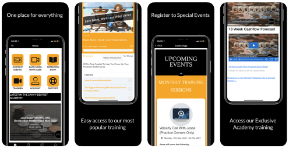Robert Cialdini’s 1984 book, Influence: The Psychology of Persuasion, famously identified six major psychological principles that make someone more influential and persuasive.
One of the factors, was likeability. Whether we consciously realise it or not, we’re far more likely to buy from someone we personally like. We might like to believe we’ll buy the best deal, the lowest price, we don’t get upsold into things we don’t need, but all the science begs to differ.
There are different factors that influence liking, and I want to share with you the story of Joe Girard. Joe Girard is the car salesman and also the greatest car salesman in the world, according to the Guinness Book of Records. And he had his formula, which was a fair price and somebody they like to buy from. And so, the ability to increase likability is going to be important.
Here are some of the principles that underpin likeability, and why we gravitate towards them.
Physical attractiveness
We know this anecdotally, but those who are conventionally physically attractive tend to be more likeable. As much as we don’t want to be shallow, this happens on an unconscious level and it’s just part of the way we’re wired.
Everything about our biology is geared to see attractive people as more successful, smarter, healthier, and ultimately, better mates. Something very instinctive in us trusts them more, and wants to do what they say. Needless to say, this makes physical attractiveness extremely useful in sales.
Similarity
We also are more likely to buy from people we see as similar to us. It draws on our natural desire to be accepted and consolidate our existing idea of who we are. That’s why fireside chats and small talk are so important in the sales process – it gives us a bit of a chance to establish common ground and similarity which will then subconsciously influence the buying decision.
It’s very instinctive for us to like and trust those we perceive to be similar to us – or even a similar but slightly more successful version of us. It has the dual effect of cementing our own idea of who we are, but also being liked and accepted by our own social group.
Compliments
This is a fairly obvious idea, but we tend to like people who compliment us and make us feel good about ourselves. However, this is to be used within reason. Excessively complimenting and sucking up to someone can often have the opposite effect and make them wonder if perhaps there are ulterior motives.
They say flattery will get you everywhere, and this is partially true. But you want to consider this in tandem with other psychological phenomena, such as “coming on too strong.”
Contact and co-operation
People tend to feel an affinity for those who are they are physically closest to, or are working towards a common goal with. It’s like that classic movie trope of a group of strangers who are perhaps on an airplane or in a lift, and they’re suddenly endangered and have to work to get to safety. They instantly develop an intense kind of bond because they’re united by both proximity and outcome.
Now, it doesn’t have to be this dramatic in a sales situation. But it’s especially common to see this principle used in the charity sector, where we see messaging like “Work with us to…” and “Join us in the fight against…”
Conditioning and association
This refers to the way we make assumptions and subconsciously link different products, attributes, and characteristics. For example, we instantly associate an Aston Martin with wealth, success, luxury, and a Jeep with discovery and adventure. Even think of the movie Jaws and how the audience were made to feel fear, suspense, and dread with that simple tune that we came to associate with the shark.
It all comes down to knowing how you want to be perceived, and the little indications that people associate with those characteristics. For example, clean and ironed clothes, good posture, a smile, and good hygiene will always make someone appear more successful and likeable. If you know your target audience values humour, playfulness, elegance, athleticism – think about the different associations we make and how you can incorporate that into your sales situation.
P.S Want to scale your dental practice and take your profits to 7 figure success?
Me and my team can work with you directly to get you there! Simply book in your FREE 1:1
strategy session, and we can get started on a game plan for you and your practice.



